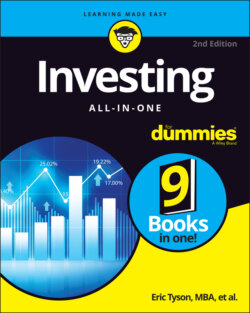Читать книгу Investing All-in-One For Dummies - Eric Tyson - Страница 37
Savings and money market account returns
ОглавлениеYou need to keep your extra cash that awaits investment (or an emergency) in a safe place, preferably one that doesn’t get hammered by the sea of changes in the financial markets. By default and for convenience, many people keep their extra cash in a bank savings account. Although the bank offers the U.S. government’s backing via the Federal Deposit Insurance Corporation (FDIC), it comes at a price. Most banks pay a relatively low interest rate on their savings accounts. (Chapter 4 in Book 2 discusses banking options.)
Another place to keep your liquid savings is in a money market mutual fund. These are the safest types of mutual funds around and, for all intents and purposes, equal a bank savings account’s safety. The best money market funds generally pay higher yields than most bank savings accounts. Unlike a bank, money market mutual funds tell you how much they deduct for the service of managing your money. If you’re in a higher tax bracket, tax-free versions of money market funds exist as well. See Chapter 4 in Book 2 for more on money market funds.
If you don’t need immediate access to your money, consider using Treasury bills (T-bills) or bank certificates of deposit (CDs), which are usually issued for terms such as 3, 6, or 12 months. Your money will generally earn more in one of these vehicles than in a bank savings account. (In recent years, the yields on T-bills has been so low that the best FDIC-insured bank savings accounts have higher yields.) Rates vary by institution, so it’s essential to shop around. The drawback to T-bills and bank certificates of deposit is that you generally incur a penalty (with CDs) or a transaction fee (with T-bills) if you withdraw your investment before the term expires.
